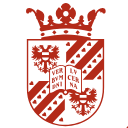Introduction
The University of Groningen is a public research university located in Groningen, the Netherlands. Founded in 1614, it is one of the oldest universities in Europe and a member of the Coimbra Group in Europe.
Overview
Student and Faculty Size: There are about 26,700 students, including 6,000 international students, 4,691 full-time employees, 364 professors and 1,500 doctoral students.
Colleges and Degree Programs: There are 9 colleges, 9 graduate schools, 27 research centers and institutes, offering more than 175 degree programs covering a wide range of disciplines.
History and Establishment
The University of Groningen was founded in 1614. The city of Groningen, where it is located, has a long history and has long been a center of science, culture, trade and industry in northern Netherlands. Since its establishment, the school has attracted a large number of foreign students and experts and scholars. Over the past four centuries, it has trained more than 100,000 outstanding talents in more than 90 countries around the world, including Nobel Prize winners, government officials, corporate elites, academic giants, etc.
School Strength
Faculty: The school has 400 professors and other high-quality teaching and research personnel. They have profound academic attainments and rich teaching experience in their respective disciplines and can provide students with high-quality education and guidance.
Scientific Research Results: The school publishes more than 5,000 research results each year, and an average of 260 doctoral students are awarded doctoral degrees. In the research rankings of ecology, materials science, chemistry and astronomy, it ranks among the top three European research universities. Its Zernike Institute ranks among the top 10 in the world in the 2015 Times Higher Education World University Materials Science Research Institute Ranking, and shares superior scientific research resources with Harvard University and MIT.
International Cooperation: As a university with a high degree of internationalization, it has extensive cooperation and exchanges with universities, research institutions and enterprises around the world. For example, it has established academic exchange relations with Peking University, Fudan University, Sichuan University and Sun Yat-sen University in China, and has cooperated with dozens of famous universities outside the European Union, actively carrying out student exchange programs and teacher exchange activities.
Institutional nature
The University of Groningen is a public university, which is highly recognized by the Dutch government and society in terms of academic research, teaching quality and social services.
Educational philosophy
Pursue academic quality and innovation: emphasize the high quality and innovation of academic research, focus on cultivating students' innovative spirit and practical ability, encourage teachers and students to explore new fields and methods in academic research, take pioneering and reform as the main theme, continuously expand new educational and scientific research fields, and reform teaching and scientific research mechanisms.
Internationalization and exchange and cooperation: adhere to the open and internationalized school-running purpose, actively cooperate with higher education institutions in other countries to carry out exchange projects, and through exchanges and cooperation with teachers and students from different cultural backgrounds, broaden students' international vision, enhance the school's international influence, and make the school's education more practical and serve the society.
Key laboratories and disciplines
Key laboratories: Zernike The Institute is one of its important scientific research institutions, and its research in fields such as materials science is at the international leading level.
Advantageous disciplines: Ecology, materials science, chemistry, astronomy, nanoscience, physics, molecular biology, microbiology, medicine, neuroscience, sociology, philosophy, theology, archaeology, communication, artificial intelligence and other disciplines have performed well and have a high academic status and influence in Europe and even in the world.
Faculty
The University of Groningen has a total of 9 faculties, namely theology, law, medicine, mathematics and science, art, economics, behavioral and social sciences, philosophy, environmental science and business management.
Ranking
Ranked 69th in the 2020 Academic Ranking of World Universities, 80th in the 2021 Times Higher Education World University Rankings, 92nd in the 2021 U.S. News World University Rankings, and 128th in the 2022 QS World University Rankings. In 2021, the University of Groningen ranked 64th in the 2021 Academic Ranking of World Universities by Soft Science.
Expenses
Tuition fees: Undergraduate courses cost about 9,000-12,000 euros per year, and master's courses cost about 10,000-15,000 euros per year, depending on the major.
Living expenses: The cost of living in Groningen is relatively low, including accommodation, food, transportation, etc., which costs about 800-1200 euros per month.
Campus
Geographic location: The campus is located in Groningen, northern Netherlands. The city is the fifth largest city in the Netherlands and the economic, trade, cultural and educational center of northern Netherlands. It has convenient transportation. It only takes about two hours to get to Amsterdam by train from the city.
Campus facilities: The school has first-class teaching and scientific research equipment and nearly one million books in the library. Its computer equipment and interactive multimedia teaching system are at the leading level among Dutch universities. In addition, the school also provides students with good sports and entertainment facilities, including multiple sports centers, as well as banks, bars, shops, restaurants and other living facilities. The school also has an advanced electronic learning environment, where students can use the computer network to search for reference materials, homework assignments assigned by teachers, teacher feedback, register for courses and exams, participate in group discussions, etc.
-
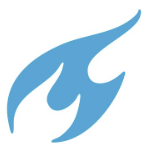
Delft University of Technology
-
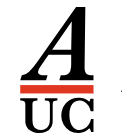
Amsterdam University College
-

University of Amsterdam
-

TIAS School for Business and Society
-
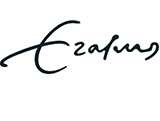
Erasmus University Rotterdam
-
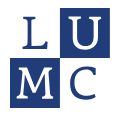
Leiden University Medical Center
-
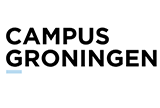
University Medical Center Groningen
-
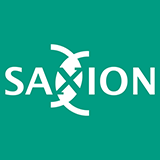
Saxion University of Applied Sciences
-
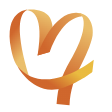
Academic Hospital Maastricht
-

Wageningen University and Research Centre
-

Mesoamerican University
-

Istmo University
-

Mariano Galvez University of Guatemala
-

Regional University of Guatemala
-

Galileo University
-

Francisco Marroquín University
-

Rafael Landívar University
-

University of the Valley of Guatemala
-

University of San Carlos of Guatemala
-

Technological Institute of Tlaxcala Plateau
-

Golfo University
-

Technological University of South Sonora
-

Technological University of Huejotzingo
-

Tizimín Institute of Technology
-

Chilpancingo Institute of Technology

